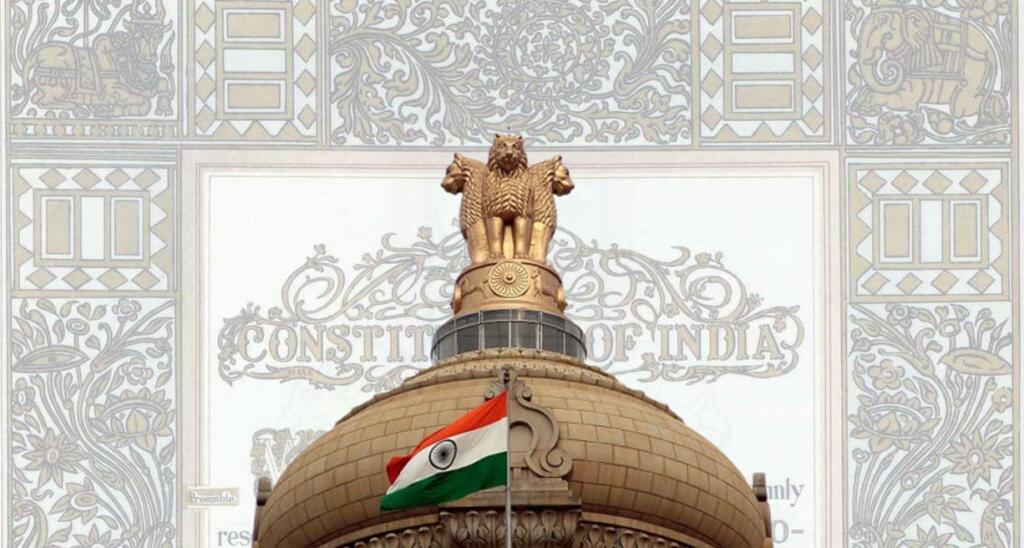In the jurisprudence of equality, we learn that treating unequal equally can never be the right interpretation of the right to equality. Different people ought to be treated differently according to different principles owing to social, economic, political, historical, and geographical conditions. Similarly, when Hindu communities are a minority in some states and a majority in others then the law should recognise it accordingly. It is unfair to the Hindu community in a particular state that despite being in minority, they can not avail the state’s help in securing the rights provided to other ‘minorities’ in that state.
The Centre has the power to notify minorities
Advocate Ashwini Upadhyay has filed PIL (Public Interest Litigation) in the supreme court of India for seeking minority status for Hindus in those states where the community is in the minority numbers.
Acknowledging the issue, SC had sought the Centre’s reply on the matter. Responding to the reply on May 9, 2022, the Central Government in its affidavit said that “the question involved in this writ petition has far-reaching ramifications throughout the country and therefore any stand taken without detailed deliberations with stakeholders may result in unintended complications throughout the country”.
Further clarifying the question posed, whether the Parliament or the State Legislature has the exclusive power to legislate on matters pertaining to minority communities and to protect their interest in accordance with the constitutional guarantees, the Central Government has stated that “the power is vested with the Central Government to notify minorities, issues raise will be finalized after having a wide consultation with the State Government and other stakeholders”.
However, in the earlier affidavit, the Central Government had stated that “the Parliament and the state Legislature have concurrent powers to enact a law to provide for the protection of minorities and their interests”.
Also Read: Once the land of the brave, Rajasthan is now a living hell for Hindus
Centre’s dilly-dallying
Annoyed with the changing stance of the Centre, SC expressed its displeasure and said that the counter affidavit filed by the Central Government seems to ‘back out of what was stated earlier, something ‘we do not appreciate’.
Although the Constitution of India does not specify the community that should be recognized as a minority under the law, the National Commission For Minorities Act, 1992 which governs and oversees the protection of minorities in India has given the power to notify the minority in India.
Section 2(c) of the act states that “minority”, for the purpose of this Act, means a community notified as such by the Central Government. The section gives a clear mandate to the Centre to notify the minorities in India & from time to time the Central Government has notified the status.
Read More: When will Hindus stop running and fight for their rights
Unequal are treated unequally and equals are treated equally
In the legal fight between court and government, Hindu rights are being harassed. If a community is in less in numbers in a particular state, how can a State treat it as a majority? Despite the fact that the majority of welfare schemes and protection of rights are implemented & formulated by the respective states.
In a heterogeneous society like India, where religious & linguistic minorities are spread all over the country, a religious group that is a majority in one state might turn out to be a minority in another.
When providing special rights to any socio-economically weaker section of the society we abridge with principles of “unequal treated unequally” and “equals treated equally” then how can the law take the ‘one fit for all’ approach towards religious communities. It is against the virtue of constitutionalism which provides special attention to minority & weaker sections.
Also Read: Dalit Hindus support opposition online, but vote for the BJP anyway
Advocate Ashwini Upadhyay echoing the demand states that “who gets 30% of the votes in the Lok Sabha becomes an MP, the one who gets 30% of the votes in the assembly becomes an MLA, and the community having 30% population of the district is called minority”.
लोकसभा में 30% वोट पाने वाला सांसद बन जाता है
विधानसभा में 30% वोट पाने वाला विधायक बन जाता है
और जिले की 30% आबादी वाला समुदाय अल्पसंख्यक कहलाता है🤔
मेरा मानना है कि अल्पसंख्यक-बहुसंख्यक बंद होना चाहिए अन्यथा अल्पसंख्यक की पहचान जिलेवार होना चाहिए
कृपया अपनी राय अवश्य दें🙏
— Ashwini Upadhyay (@AshwiniUpadhyay) May 11, 2022
Basically, the community that forms the major chunk in a particular Lok Sabha Constituency, state legislative constituency, or a local assembly constituency enjoy minority status, as per the national standards.
If the rights & protection of minorities are operational through the respective states, how can a state not treat the actual minority that is Hindus according to the minority’s rights? How can the country equate the majority religion of a nation to a minority religion of a State?
